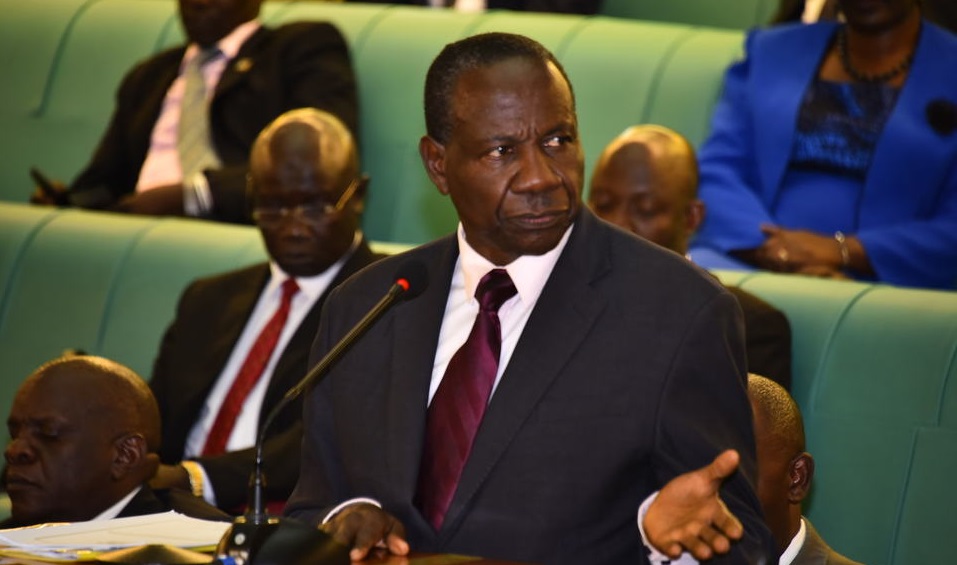By Eriah Lule.
On Saturday, I walked to Kiko Market (Mukono Central Market) as usual to stock my weekly groceries. I was shocked by the cost of essential goods. The cost of goods like soap, cooking oil, and salt has been tripled.
The traders and the clients are mystified by the cost of essential goods. Najjuma Aisha trader in the market is baffled by the cost of some goods produced in the country.
“But even the local products are fluctuating. What is going on?” asked Najjuma Aisha, a trader in the market.

According to the Daily Monitor Newspaper, on Thursday, May 12, 2022, the Deputy Speaker of Parliament, Hon. Thomas Tayebwa, instructed the Finance Minister, Hon. Matia Kasiajja, to furnish the house with a comprehensive report on how the government is dealing with the skyrocketing prices of goods and services in the country.
In the first half of 2021, Uganda’s Finance Ministry reported that 28% of Ugandans were poor. That rate had increased from 18% before the pandemic. In line with World Bank practice, the official poverty line is the equivalent of $1.90 in purchasing power per day and head.
According to the Daily Monitor, the Bank of Uganda released its Monetary Policy Report for April and noted that “the heightened geopolitical tensions in Europe [and] persistent supply-side disruptions induced by the pandemic… have caused global food, energy, and non-energy prices to sky rocket.”
The Bank of Uganda also estimated that inflation will “rise slightly above the 5% target in the medium term (2–3 years ahead)”. The annual headline and core inflation now stand at 5.2% and 4.7%, respectively, of which the government has done nothing yet.
In his response, the Finance Minister told the House that his ministry would only present a statement on the rising prices after President Museveni had weighed in on the issue.
Many of the traders and service providers in different sectors have either resorted to raising the prices on commodities and services or have kept the former prices in order to sustain the never decreasing demand from customers.
Juma Musa (not his real name), a hostel owner in Mukono, says that these days they no longer do business for a profit but are trying to help their customers, who are students at Uganda Christian University (UCU), to afford accommodation while studying.
“I am also a parent; I know the situation; we can’t over charge students because the economy is shaky and parents’ income is not normal as it used to be before COVID,” he said. “Now it’s cooperation between business owners and customers to get services and goods.”
Rosette Nabulya, a whole sale trader in Bugujju Trading Center in Mukono Municipality, says that the higher taxation rates imposed by the government have led to the fluctuating prices of commodities.
“You can’t tell me that locally made products are more expensive now compared to the past,” she said. “I am ashamed that I sell a liter of cooking oil at 10,000 shillings to my customers.”
Alioni Jacob, a bodaboda rider at the UCU Tech Park stage, says that with the rising prices of fuel, it’s making their work hard since their customers are rigid and they don’t want to adjust to change.
Customers are amusing; they still want to be ferried at the previous charges,” he said, “and they rarely accept explanations.”
One would agree with experts that it’s the aftermath of the COVID-19 Pandemic that caused a massive gap in all sectors of the economy to hit a hiccup in their progress. Golola William, a taxation expert, lecturer at the UCU School of Business and an auditor with the office of the Auditor General, analyses the current situation in the country.
Tumwebaze Joshua, a third-year student pursing a bachelor’s degree in procurement and logistics management, believes that with such fluctuating prices on commodities and services, it’s going to be a big challenge during their tenure at the university.
“We depend on small upkeep that our parents give us. With the fluctuating prices, it’s going to be a bit hard to purchase all our basic


